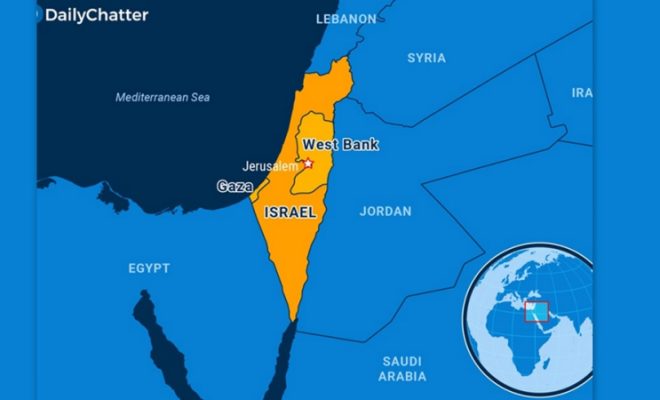
‘Exodus’ scenario may be most feasible solution for Israel-Hamas war
Though unpalatable, global deliberations of Gaza’s future must consider relocation
The repercussions of the unanticipated attack by Hamas on Israel on 7 October will occupy the world for years. Leaving aside the horror on both sides, we must ask how the Gaza war unleashed by Israel’s ‘7/10’ will end.
One outcome involves a two-state solution. The other, a strenuous alternative: relocating large numbers of Palestinians outside the region. It might be possible to transfer Palestinians to Muslim-majority countries in western Asia where they will be able to live safely and freely. However, given the size of the potential exodus, this would require serious international co-operation and substantial funding. International deliberations on the future of Gaza need to consider this unpalatable question.
We should be prepared for many eventualities. Hamas must have debated its surprise assault and known that it would elicit a violent response. In every attack launched by the Arab side since 1947, Israel has retaliated and won. Either Hamas underestimated the response or has more in store.
Benjamin Netanyahu, the Israel prime minister, has committed the Israel Defence Forces to wipe out Hamas. The delay in launching the ground assault may have been due to US recommendation allowing time for Gazans to move southwards. Or it may reflect military preparation for penetrating Hamas’ underground corridors.
Possibility of an enlarged war assigned low probability
Israel’s attacks have spawned a grave humanitarian crisis. Its siege on Gaza could yet claim thousands of Palestinian lives – many of them women and children. Regardless, Netanyahu has ignored demands for a ceasefire and is staking everything on an endgame, seemingly aiming for unconditional surrender. One ‘consolation’ is that, in any rational scenario, we can rule out the use of atomic weapons in the Middle East. Owing to geographical proximity, atmospheric radiation would kill large numbers in the bomb-launching country.
The conventional war may yet spread if Lebanon’s radical Hezbollah party follows up its threats on Israel in the North or Iran provokes the US with more attacks. An enlarged war would see Israel as well as the US and the West opposing Hamas, while the Arab nations (and Iran) side with Hamas. Because of the low likelihood of the Arab nations uniting to support Hamas, I would assign this outcome a low probability.
We need to consider the unthinkable – that Israel loses against Hamas. The US was defeated in Vietnam and had to vacate in a hurry. It also lost in Afghanistan. In these ‘foreign’ fields, a guerrilla army has vanquished more powerful states. Hamas’ tunnel warfare may yet succeed. If Israel appeared to be losing, the US (as well as the UK) would come to its aid through military intervention. Even if the probability is small, some thought needs to be given to this eventuality.
Destruction and reconstruction
There are two more likely outcomes. First, Israel succeeds in eliminating Hamas as a terrorist threat and Palestine as a state. The two-state solution dies, along with immense numbers of civilian Gazans (as well as Israeli and Hamas soldiers). Gaza, including most of its infrastructure, is destroyed. Israel occupies the entire territory. Gaza and the West Bank need to be reconstructed, which the international community will somehow pay for, and just as in previous military confrontations, many Palestinians will become refugees again.
A scheme will be needed to relocate many new Palestinians refugees as well as those in surrounding Arab nations displaced by previous battles. Through concerted international action, sparsely inhabited Muslim-majority states across the Caspian Sea – the ‘stans’ of the former Soviet Union: Uzbekistan, Turkmenistan, Dagestan and so on – could be prevailed upon to absorb Palestinian refugees.
Second, Israel wins the war and a two-state solution is revived with a physical barrier between the two states. This will require an international conference to organise a hard impenetrable border (not an easy task with the sea nearby), perhaps with an uninhabited safe corridor. While Jerusalem may have to be made a separate United Nations-run international city belonging to neither state, under an international treaty, each side will guarantee not to invade the other.
If this second option – akin to the 1998 Good Friday agreement, which ended the troubles in Northern Ireland, proves elusive – then the ‘exodus’ scenario may be the only realistic option. This would be a huge task for the UN, G7 or G20. The biggest obstacle would be reconciling Palestinians with the abandonment of hopes of returning to their old home. But for a people who have suffered from repeated shocks of exile from their land over the last 75 years, it may be the only feasible solution.
Meghnad Desai is Emeritus Professor of Economics at the London School of Economics and Political Science, Chair of the OMFIF Advisory Council and Crossbench Peer in the House of Lords.
Πηγή: omfif.org





